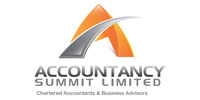Registering for self assessment and filing self assessment returns online is generally the fastest and easiest way to deal with self assessment. It also gives you online access to your personal tax account, and other business taxes as well if you are self-employed.
Registering for self assessment online
There are different ways to register for self assessment online, depending on whether you are self-employed and whether you have already registered for self assessment.
If you have completed a self assessment tax return before, you will need to find your tax reference number (UTR). This should be on any tax returns and other paperwork that HM Revenue & Customs sent you.
You can also register for online services if:
- you are already registered for self assessment, but now want to file online instead of using paper returns;
- you don't need to file self assessment returns, but want to be able to use your online personal tax account;
- you want to use other HMRC online services (for example, other business taxes).
To get an online account, you will need a secure online ID and password. You may already have one (for example, if you are self-employed and have registered for VAT). If not, this will be created as part of registering.
Your personal tax account
Registering for self assessment online automatically gives you a personal tax account. You can use this for tasks like:
- completing your self assessment tax return;
- checking your PAYE tax code and estimated tax bill;
- giving HMRC updated information like a change of address;
- managing tax credits.
If you are self-employed, you can also use your HMRC online login to sign in to your business tax account. This includes the key business taxes that need to be managed online, like VAT and PAYE.
Self assessment online help
There is a range of HMRC help with self assessment. You can
- find HMRC videos and webinars on key aspects of self assessment;
- find HMRC helpsheets for the main tax return and for supplementary sections you might need to complete such as self-employment;
- get help with problems signing into your tax account;
- get general help through Twitter using @HMRCcustomers.
If you have want to discuss your personal tax affairs, or prefer to get phone advice, contact the HMRC self assessment helpline (0300 200 3310).
If you cannot get the help you need from HMRC, other sources of support include:
- our guides on self assessment and self-employment;
- free tax help for older people on a lower income from the charity Tax Volunteers;
- help with tax problems for people on low incomes from the charity TaxAid;
- help and advice from your accountant.
Making Tax Digital
The government is gradually moving towards a new tax system using digital records, Making Tax Digital.
Making Tax Digital will allow information to be sent directly to HMRC using software, rather than needing to complete a self assessment return. This should make things easier and quicker, and reduce the risk of mistakes.
Making Tax Digital started with VAT for businesses in April 2019. VAT-registered businesses are now required to use the service to file their VAT returns.
Making Tax Digital for income tax is also being trialled for the self-employed and landlords. You can join the Making Tax Digital pilot for income tax if you wish. The Government has postponed the implementation of MTD for the purposes of income tax until April 2026 and will be phased in beginning with those with an annual income over £50,000.
You can find out more with HMRC's help and support for Making Tax Digital.
